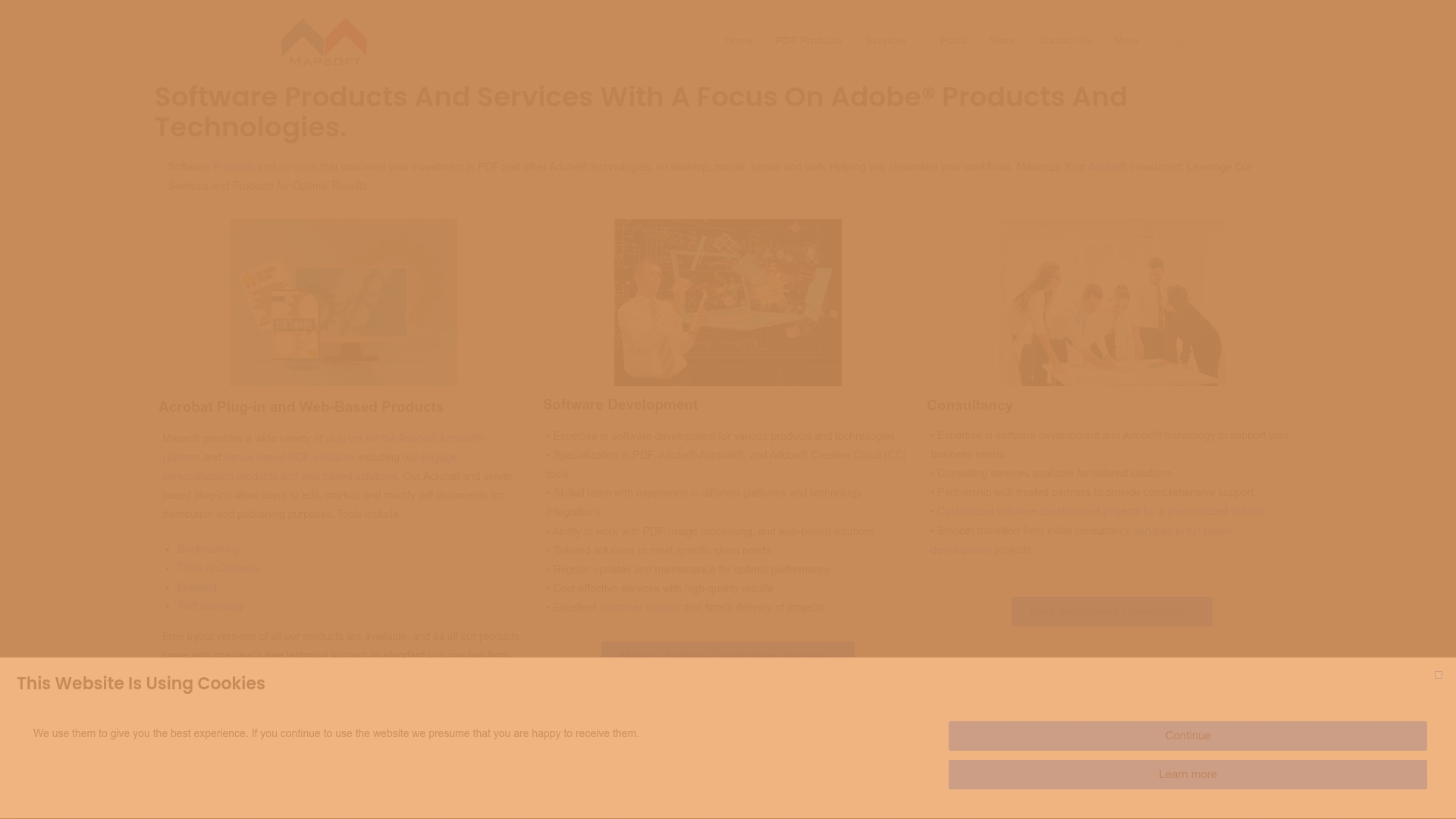Every modern business juggles huge volumes of documents, and managing all those files has never been more complicated. Surprisingly, some platforms can process over one million PDF pages per hour, dwarfing anything most offices could ever handle by hand. Yet the real win is not just speed. Bulk PDF conversion is quietly reshaping compliance, security, and even how teams collaborate, opening up smarter and safer workflows that most companies never expect from a simple file conversion.
Table of Contents
- Why Bulk PDF Conversion Matters For Enterprises
- Key Features Of Bulk PDF Conversion Tools
- Integrating Bulk PDF Conversion With Adobe Workflows
- Best Practices For Secure And Efficient Batch Processing
Quick Summary
| Takeaway | Explanation |
|---|---|
| Bulk PDF conversion improves efficiency. | Automating document conversion reduces manual labor, saving time and resources across departments. |
| Ensure compliance with standardized documents. | Converting documents in bulk maintains consistency and enhances searchability, crucial for meeting compliance requirements. |
| Invest in advanced processing capabilities. | Select tools that utilize machine learning and scalable architectures for high-precision document conversion. |
| Integrate with existing workflows. | Seamlessly connect PDF conversion tools with Adobe workflows to streamline document management processes and reduce complexity. |
| Implement security best practices. | Utilize advanced encryption, access controls, and continuous monitoring to protect sensitive information during batch processing. |
Why Bulk PDF Conversion Matters for Enterprises
Enterprises face complex document management challenges that require sophisticated bulk PDF conversion solutions. The ability to transform multiple documents quickly and efficiently has become a critical operational necessity in today’s digital business environment.

The Economic Impact of Efficient Document Processing
Document processing represents a significant overhead for organizations. Research from DocShifter indicates that automating PDF conversion at an enterprise level can dramatically reduce manual work and improve operational efficiency. Businesses spend countless hours manually converting documents, which translates to substantial productivity losses.
The economic implications are substantial. Organizations can save significant resources by implementing bulk PDF conversion strategies that minimize human intervention. A single enterprise might process thousands of documents weekly, and each manual conversion can consume several minutes. Multiplied across departments, these minutes quickly transform into hours of lost productivity.
Compliance and Information Management
Government document management research highlights the critical importance of compliant document archiving and processing. Enterprises must maintain precise, searchable, and consistently formatted documents across various departments. Bulk PDF conversion solutions enable organizations to:
- Standardize Document Formats: Ensure consistent presentation across all organizational documents
- Enhance Document Searchability: Create machine-readable PDFs with embedded text recognition
- Reduce Human Error: Minimize mistakes associated with manual document handling
Strategic Workflow Optimization
Modern enterprises require flexible document management strategies. Advanced PDF batch processing insights demonstrate that organizations can simultaneously handle multiple documents, dramatically improving workflow efficiency. This approach is particularly crucial for industries dealing with high-volume documentation, such as legal, finance, and healthcare sectors.
The ability to automate complex document workflows represents a significant competitive advantage. By implementing robust bulk PDF conversion solutions, businesses can redirect human resources toward more strategic, value-added activities.
Enterprise-grade PDF conversion is not merely a technical convenience but a strategic imperative. Organizations that recognize and invest in advanced document processing technologies position themselves to achieve greater operational agility, compliance, and competitive advantage in an increasingly digital business landscape.
To help readers quickly compare how bulk PDF conversion tools address core enterprise needs, the following table summarizes key benefits across operational, compliance, and workflow dimensions:
| Business Need | Problem/Challenge | How Bulk PDF Conversion Helps |
|---|---|---|
| Efficiency | Manual document handling is time-consuming | Automates batch processing; saves time and resources |
| Compliance | Inconsistent formats and search issues | Standardizes files; ensures searchable, compliant output |
| Accuracy & Error Reduction | Prone to human error during manual conversion | Minimizes errors with automated processing |
| Workflow Optimization | Bottlenecks slow collaboration and productivity | Streamlines multi-doc workflows; enables automation |
| Security | Sensitive data at risk during manual transfer | Enforces encryption, access controls, and audit trails |
Key Features of Bulk PDF Conversion Tools
Bulk PDF conversion tools have evolved into sophisticated solutions that address complex document management challenges for modern enterprises. These advanced platforms go beyond simple file transformation, offering comprehensive features that enhance document workflow efficiency and accessibility.
Advanced Document Processing Capabilities
Research from the Corpus Conversion Service reveals that cutting-edge PDF conversion tools now employ modular, cloud-based architectures with machine-learning algorithms. These technologies enable organizations to ingest large document volumes with exceptional precision. Key processing capabilities include:
- Scalable Conversion: Handle thousands of documents simultaneously
- Machine Learning Integration: Improve accuracy and efficiency over time
- High Precision Processing: Achieve content conversion accuracy approaching 99%
The ability to transform multiple document types rapidly represents a significant technological advancement. Comprehensive PDF conversion guides highlight the importance of selecting tools with robust processing capabilities that can handle diverse file formats and complex document structures.
Accessibility and Structural Transformation
Open-source document conversion research demonstrates emerging technologies like Docling, which utilize specialized AI models for advanced document analysis. These tools can perform complex tasks such as:
- Layout analysis
- Table structure recognition
- Intelligent content extraction
- Metadata preservation
The New York State Education Department’s accessibility guidelines underscore the critical importance of PDF conversion tools that can:
- Add document tags
- Set comprehensive document properties
- Perform optical character recognition (OCR)
- Configure accessibility settings
Intelligent Workflow Integration
Modern bulk PDF conversion tools are not standalone applications but sophisticated ecosystem components. They integrate seamlessly with existing enterprise software, providing:
- Automated workflow triggers
- Customizable conversion rules
- Comprehensive reporting and analytics
- Secure document handling protocols
Enterprise-grade PDF conversion solutions transform document management from a mundane administrative task into a strategic operational capability. By selecting tools with intelligent features, organizations can unlock unprecedented efficiency, ensure regulatory compliance, and create more accessible digital document environments.
The table below presents an overview of advanced features found in modern bulk PDF conversion tools, making it easy to scan their key capabilities and enterprise advantages:
| Feature Category | Key Capabilities |
|---|---|
| Advanced Processing | Scalable document ingestion, machine learning integration, >99% accuracy |
| Accessibility Tools | Tagging, OCR, metadata preservation, layout analysis, table recognition |
| Workflow Integration | Automation triggers, customizable rules, analytics, secure protocols |
| Cloud Architecture | Dynamic scaling, cost reduction, distributed/parallel processing |
| Security Protocols | Advanced encryption, granular access control, audit trails, multi-factor authentication |
| Validation & Monitoring | Automated capture, intelligent OCR, configurable rules, continuous performance tracking, dynamic batch sizing |
Integrating Bulk PDF Conversion With Adobe Workflows
Integrating bulk PDF conversion solutions with Adobe workflows represents a critical strategy for enterprises seeking to optimize document management processes. Modern organizations require seamless, efficient systems that can transform document handling from a complex challenge into a streamlined operational advantage.
Cloud-Based Conversion Architecture
Research on document conversion services highlights the importance of scalable cloud architectures in managing bulk PDF transformations. These advanced systems enable organizations to achieve high throughput and responsive document processing, addressing the complex needs of enterprise document workflows.
Cloud-based integration allows businesses to:
- Scale Dynamically: Adjust processing capacity based on organizational needs
- Reduce Infrastructure Costs: Eliminate expensive on-premise hardware investments
- Enhance Processing Speed: Leverage distributed computing resources
Automating workflow with Adobe Acrobat’s actions provides enterprises with powerful tools to create repeatable, efficient document conversion processes that minimize manual intervention.
Workflow Automation Techniques
Comprehensive document automation research reveals sophisticated methodologies for integrating bulk document processing into enterprise systems. These techniques enable organizations to create intelligent, adaptive workflows that can handle complex document transformation requirements.
Key automation strategies include:
- Configuring batch processing rules
- Implementing intelligent document routing
- Creating metadata-driven conversion protocols
- Establishing automatic quality control checkpoints
Advanced Adobe Integration Strategies
Adobe Experience Manager documentation provides detailed guidance on using batch APIs for document generation. These advanced integration techniques allow businesses to:
- Generate multiple documents simultaneously
- Create complex batch configurations
- Execute document processing runs with precision
- Maintain consistent formatting across large document sets
Enterprise-grade PDF conversion is no longer just a technical requirement but a strategic capability. By leveraging advanced Adobe workflow integration techniques, organizations can transform their document management processes, reduce operational complexity, and unlock new levels of productivity and efficiency.
Best Practices for Secure and Efficient Batch Processing
Batch processing of PDF documents requires a strategic approach that balances security, efficiency, and operational reliability. As enterprises increasingly rely on digital document management, implementing robust best practices becomes crucial for maintaining data integrity and operational performance.

Performance Optimization Strategies
Advanced cloud-based document conversion research demonstrates remarkable processing capabilities, with some services achieving over one million PDF pages processed per hour across distributed computing networks. This level of performance requires careful architectural design and strategic implementation.
Key performance optimization techniques include:
- Distributed Computing: Leverage multi-node processing architectures
- Parallel Processing: Implement concurrent document conversion workflows
- Dynamic Resource Allocation: Adjust computational resources based on workload demands
Automation techniques for document workflows provide enterprises with powerful tools to create repeatable, high-performance batch processing environments.
Advanced Security Protocols
Cryptographic research on PDF encryption reveals sophisticated approaches to protecting sensitive documents during batch processing. Modern encryption strategies go beyond traditional methods, offering lightweight yet robust security mechanisms.
Comprehensive security practices involve:
- Implementing advanced encryption algorithms
- Creating granular access control mechanisms
- Establishing comprehensive audit trails
- Utilizing multi-factor authentication for batch processing systems
Efficiency and Validation Frameworks
Industry best practices for batch processing emphasize the importance of creating structured validation frameworks. Successful batch processing requires:
- Automated document capture techniques
- Intelligent optical character recognition (OCR)
- Precise validation rule configurations
- Continuous performance monitoring
- Dynamic batch size adjustments
Enterprises must view batch processing not as a technical requirement but as a strategic capability. By implementing these advanced techniques, organizations can transform document management from a potential bottleneck into a competitive advantage, ensuring secure, efficient, and scalable digital workflows.
Frequently Asked Questions
What is bulk PDF conversion?
Bulk PDF conversion refers to the process of converting multiple PDF documents simultaneously, allowing organizations to handle large volumes of documents efficiently and effectively.
How can bulk PDF conversion improve business efficiency?
By automating the document conversion process, bulk PDF conversion reduces manual labor, saves time, and minimizes the risk of human error, leading to increased productivity across departments.
What are the key features to look for in bulk PDF conversion tools?
When selecting bulk PDF conversion tools, look for capabilities such as advanced processing, accessibility features, intelligent workflow integration, and robust security protocols to ensure efficient and compliant document management.
How does integrating Adobe workflows enhance bulk PDF conversion?
Integrating Adobe workflows with bulk PDF conversion solutions streamlines document management processes, allowing for automated workflow triggers, customizable conversion rules, and efficient handling of complex document tasks.
Achieve Seamless Bulk PDF Processing with Mapsoft
Managing massive volumes of documents can feel overwhelming. The article spotlights how businesses lose valuable time to manual PDF conversion, struggle with compliance standards, and face workflow bottlenecks without robust automation. When documents pile up, accuracy and speed become critical, and security risks can grow with every manual touch.
The good news is, you do not have to face these challenges alone.

Mapsoft is your partner for modern document processing excellence. Our Mapsoft PDF Hub web and API platform has been built for enterprises that demand fast, secure, and compliant bulk PDF processing. Convert, edit, automate, and secure thousands of files in repeatable workflows — all while integrating smoothly with your existing Adobe tools. Need to build structured, high-volume PDF workflows or create custom plug-ins? Discover how our custom software development and consultancy services can be tailored to your unique business needs. Act now to safeguard productivity, reduce risk, and unlock the real power of automated PDF conversion. Visit Mapsoft.com today to book your consultation or start optimizing your PDF workflows.
Recommended
- Creating Searchable PDFs: Best Practices for 2025 Workflow – Mapsoft
- Converting PDF Files to Word Documents: A Comprehensive Guide
- Automating Workflow with Adobe Acrobat’s Actions
- Digital Project Management in 2025: Adobe-Powered Strategies – Mapsoft
- Odoo document module. Manage complete documentation in Odoo


